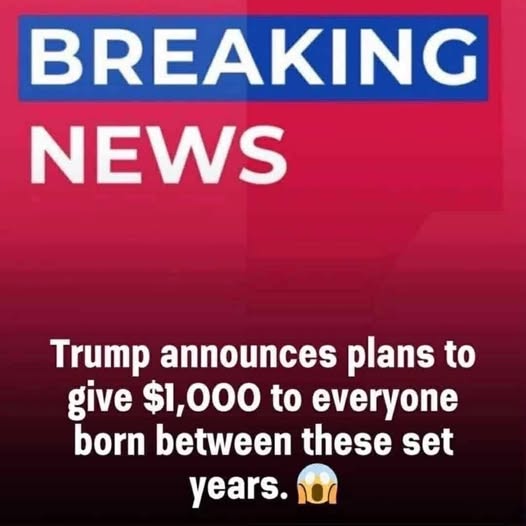
In a surprising development that has left both political and financial sectors in shock, President Donald Trump revealed one of the most audacious domestic policy initiatives of his administration.
From the White House podium on Monday, June 9th, Trump introduced an extensive investment program designed to promote generational wealth and broaden economic opportunities.
As part of the plan, every American infant born within a specified four-year period would be granted a government-funded $1,000 investment account. These accounts would be linked to stock market performance, enabling the funds to potentially appreciate over time.
Colloquially referred to as “Trump Accounts,” this initiative signifies a radical re-evaluation of the government’s role in fostering financial security for future generations.
Proponents contend that the policy could provide millions of families with a significant advantage in terms of savings, college financing, or even retirement planning. They assert that it embodies a progressive approach to economic empowerment.
Conversely, critics have expressed apprehensions regarding the dangers of associating government-funded accounts with market fluctuations, as well as concerns about funding sources and long-term oversight.
Nevertheless, the announcement has sparked a discussion on how public policy can effectively tackle wealth inequality, with some analysts deeming it one of the most ambitious wealth-building initiatives in U.S. history.
Whether this program will become a fundamental aspect of Trump’s legacy or a source of contention, it represents a new chapter in the convergence of government policy and personal finance.
